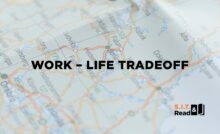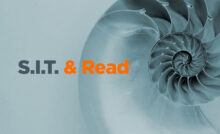Yes, There is Such a Thing as an Ugly Baby
Imagine you’re working on a new initiative, and you come up with a great idea. You do some research on it, and you find some really good evidence to support your point-of-view. You think to yourself, “The team is going to love this.” So you go to your boss to pitch the idea.
But the boss seems skeptical. So she asks you to go out and do a some more research on it. You’re convinced this is a winner, so you go out and get a lot more data to support your case.
Along the way, you run across a few things that suggest that maybe it’s not such a great idea. But you ignore it because there is so much data in favor of your idea. You rationalize the negative information to minimize it – perhaps the source is not credible, or their situation was different. You just don’t much much value in it.
You go back to your boss and present all the positive evidence. You either leave out or barely mention the negative data that goes against your argument. And in doing so, you have just committed a cognitive error that can lead to poor judgments – The Confirmation Bias.
Confirmation bias is the tendency for people to only seek out information that conforms to their pre-existing viewpoints, and subsequently ignore information that goes against them. You overweight the good news, and underweight the bad news.
In some cases, you look for information to justify the decision you are already planning to make. This happens a lot in job interviews. Imagine you’re interviewing a candidate for a job. You think the candidate is a good fit, so you ask questions that allow the candidate to present himself in a positive light. If you know you won’t hire the candidate, you tend to ask questions that force the candidate to focus on his or her deficiencies. That is confirmation bias, and most of the time, you’re not even aware that you are doing it.
You would think that the availability of mountains of information could protect you from the confirmation bias. The problem is there is so much information that we have to make choices. We have a strong tendency to select according to what we believe.
It’s not hard to see why confirmation bias can lead to bad decisions. If we don’t gather a fair balance of information, we don’t give ourselves a complete and objective view of the situation. You increase the chances of being wrong.
By the way, when you share all the evidence with your, positive and negative, it actually strengthens, not weakens your case.
Confirmation bias is something all humans have. But just being aware of it isn’t good enough to prevent you from it. You can’t get rid of it, but there are things you can do to mitigate its effects and make better judgments.
To avoid confirmation bias, keep these pointers in mind:
- List out the reasons that support your case. Then, imagine each one of them is wrong. Ask, how would it affect your decision. Take your strongest arguments and go find evidence that disproves them.
- Get help from colleagues in finding evidence. Ask one colleague to find only positive evidence. Ask another colleague to find only negative evidence. This will help give you balance.
- Find someone to act as a “dissenting voice of reason.” Present all the evidence you have and let them challenge you. That way you’ll be confronted with a contrary viewpoint to examine.
- Frame opportunities in a way that forces you to find ways of disproving your hypothesis. Instead of saying, “let’s find reasons why this initiative will work,” frame it this way: “Let’s find reasons why this initiative won’t work.”
Recent Posts
Innovation Behavior
Innovation is a skill, not a gift. Top organizations drive growth by nurturing and investing…
Should you learn TRIZ? – Yes. ….and No.
Are you in the world of problem solving? Is problem solving a skillset you have…
What Lies Ahead in 2024?
5 Data-Driven, Customer-Centric trends we’ve identified This is not just another conventional forecast. Over nearly…
Fork or Chopsticks – Which Innovation Tools Do You Use?
Imagine a chef, who only uses a spoon. Imagine a dentist, who only uses a…
The Moat Mentality: Exploring New Frontiers in Innovation Methodologies
In investing and business strategy, we often speak in terms of moats. Warren Edward Buffett…
Was it a Breakthrough or an Adjacency?
This year, P&G’s Febreze celebrates its silver anniversary as a brand. But not all 25…


